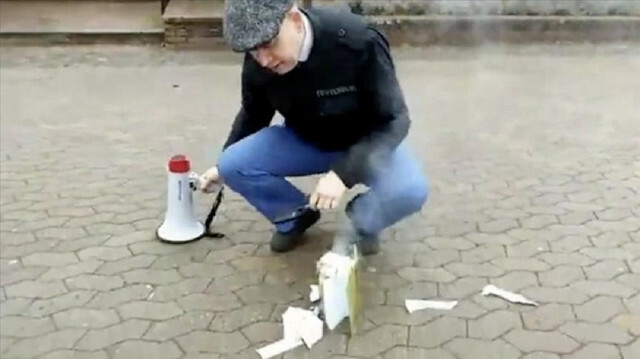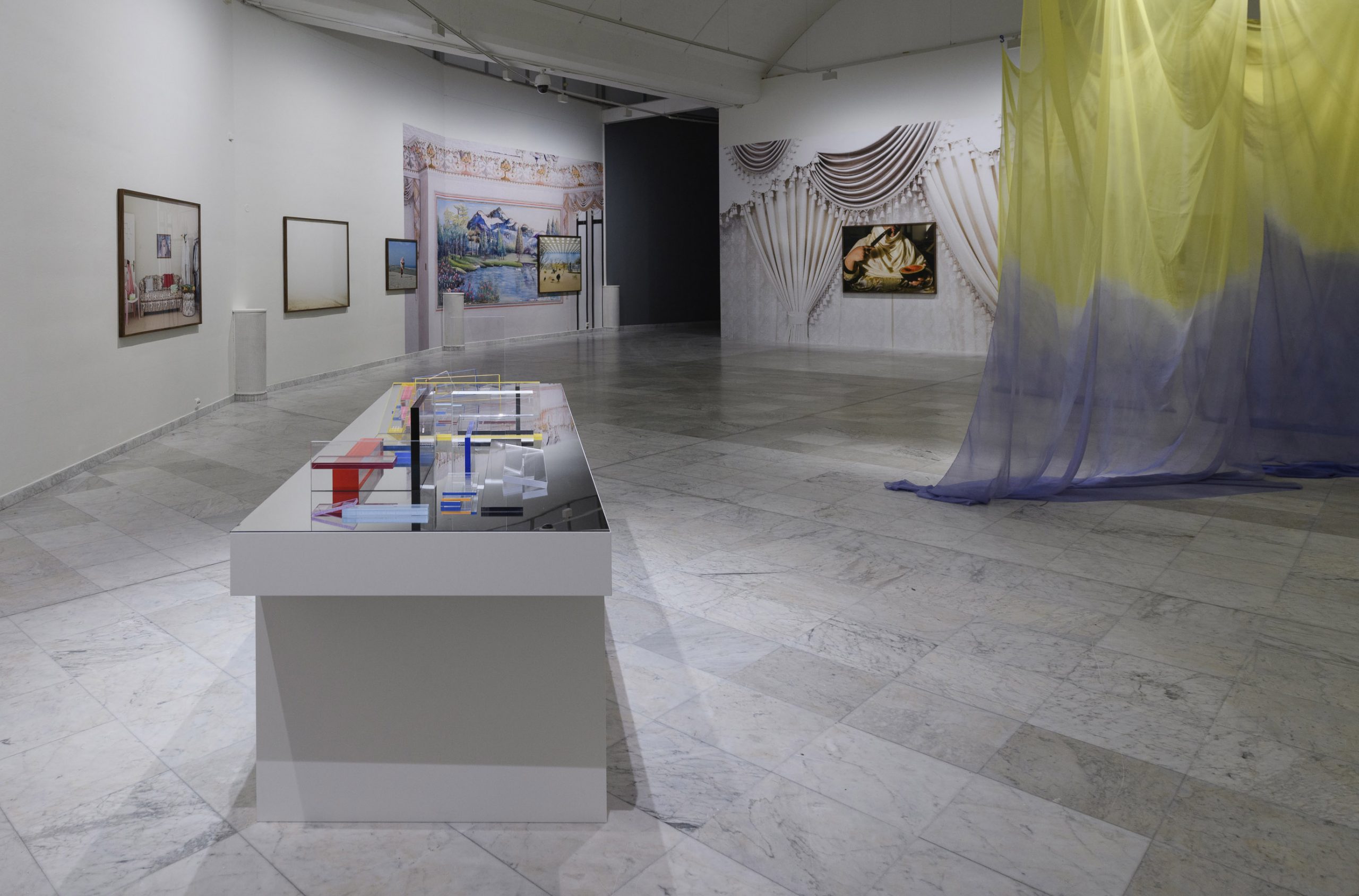Inside an Italian Police Chase to Stop the Theft of Ugly Sea Creatures
, Bloomberg News
(Bloomberg) -- At dusk, a man pulled a jam-packed net from the Ionian Sea into a speed boat headed for Taranto, a city in Puglia, Italy. He’d make a few hundred euros off the catch if he could get it into the right hands without being spotted. His cargo was about 110 pounds of wiggly, slimy sea cucumbers, or—as they are locally called in Italy—“poop of the sea.”
Arturo Casale, 65, got word of the man’s fishing expedition later that day in the form of a photo. It was too late to catch the thief. As the founder of an environmental nonprofit called Mare Per Sempre (“Sea Forever”), Casale is known locally as the area’s premiere defender of sea cucumbers, which are important in maintaining healthy marine ecosystems and combating effects of climate change.
News of the illegal harvest reached him in early November last year, just a month before the local government was set to deliberate whether gathering sea cucumbers would continue to be a crime. “It felt like we fell from the clouds,” says Casale. “We were infuriated.”
While most Italians may shiver at the thought of eating sea cucumber, some East Asian countries highly value it in their cuisine and traditional medicine. In 2020, China and Hong Kong were the world’s largest sea cucumber buyers, importing more than 70% of a global supply worth around $270 million. China’s love for sea cucumbers—driven by texture, look, and significance in local medical practices—fuels a complex and unsustainable supply chains that originates in Africa, Latin America, South Asia, and the Mediterranean. A kilogram of sea cucumbers can sell for up to $3,000 to Chinese buyers.
In the past decade, local Italian thieves, aided by Turkish and Greek smugglers, have capitalized on the new business opportunity and started plundering the coast of southern Italy.
In Taranto, located in Puglia on the heel of Italy’s boot, Casale’s small team of volunteer “sea sentinels” has been monitoring the coastline for marine poachers. The team’s work was instrumental in orchestrating a nationwide ban on sea cucumber harvesting in 2018. The three-year effort by activists, police, prosecutors, and scientists resulted in Italy becoming the first country in Europe to completely prohibit the extraction and commercialization of the sea cucumber.
However, the ban on sea cucumber harvesting isn’t permanent. It’s a moratorium set to expire in December.
“[Regulators] haven’t issued a definitive one, and every year it’s a battle till the last day,” says Rosalba Giugni, founder of environmental nonprofit association Marevivo, who pushed for the sea cucumber ban back in 2016 and lobbies to continue it.
The fisherman captured on film in November is far from the only one breaking the law: A few days after the incident, Taranto’s financial police arrested 17 people accused of participating in illegal trafficking. Attempts by local criminals to recapture that market haven’t ceased, and seizures keep happening around southern Italy: On March 15, 2021, three tons of live sea cucumber (in 144 plastic buckets) bound for Greece were seized by Brindisi’s port authorities.
In September, a vendor who claimed to be from Taranto advertised on 21food.com, a Chinese food-trading website, that it could process 1,000 kilograms per month of Holothuria tubulosa, a sea cucumber species common to the Mediterranean.
The protection of these mild sea creatures hangs by a thread. It depends on complex and collective efforts by environmentalists, law enforcement agencies, scientists, and lobbyists. Sometimes it’s hard to convince people that sea cucumbers are worth protecting.
“Do you know what [Italians] call sea cucumbers? Dicks of the sea,” says Silvestro Greco, a marine biologist at the Anton Dornh Italian National Institute of Marine Biology. “Who gives a damn about the dicks of the sea, right?”
The sea cucumber is not particularly loved. Slug-like, it lacks the personality of an octopus, the Pixar-fication of the clownfish, or the delight of the starfish, to which it is related. Sea cucumbers don’t attempt to escape their captors, and the ones most popular on the Asian market are smaller than the palm of one’s hand. Only within the past 15 years has it become clear how essential they are to the ocean.
“They have a similar role to an earthworm in that they eat sand and process any of the organic matter and decaying plant matter that's in the sand, and they poop out clean sand,” says Steven Purcell, a professor of marine ecology at Australia’s Southern Cross University who wrote a book on sea cucumbers. In doing so, he adds, the sea cucumber helps clean and oxygenate sediments in marine habitats. Smaller animals like worms, crab and even small fish may live on or around adult sea cucumbers to take advantage of their defensive toxins.
An abundance of some large species of sea cucumber can help counter ocean acidification, a nasty side effect of climate change that occurs when too much carbon dioxide dissolves in the water. Ocean acidification slows the growth of coral reefs, which host a multitude of marine life. Sea cucumbers, thanks to their mineral-rich poop, can provide corals the calcium needed to help grow their skeletons
“Through their digestion, they actually enhance the alkalinity of the seawater around them. … And so, where you have dense populations of these large sea cucumbers, that might help to buffer some systems from ocean acidification at local scales,” Purcell says.
For all their importance, stirring interest in conserving sea cucumbers has been somewhat challenging around the world. In the mid 1990s, only about 35 countries harvested sea cucumbers. Today, more than 70 countries are involved in the harvest and trading.
“They're easy to collect by hand. They don't turn away. They're just sitting there. And if you can dive to the depths where they occur, you just need to pick them up,” says Purcell.
Born and raised in Taranto, Casale made ends meet for 40 years working in auto body repair. In 2014, he closed up shop and decided to dedicate his life to protecting the sea.
“If I spend two days in the city and I do not touch the sea—if I don’t dip my hands in it—I feel sick,” he says.
In early 2015, Casale and fellow Sea Sentinel Sergio Passarelli stood on the Discesa Vasto pier in Taranto, marveling at the scene unfolding before them. In a frenzy, fishermen and townspeople alike were dumping buckets of sea cucumber onto growing mounds stacked along the pier. Boats that had been docked for years were out at sea, busily fetching more.
“We’re talking boats overloaded with sea cucumbers,” says Passarelli, a 39-year-old firefighter and active member of Mare per Sempre.
At the beginning, there was a mad rush to clean out all the areas in Taranto colonized by sea cucumbers, Passarelli says.
“Kids were involved, too. In about half an hour, they would fill up a bucket with sea cucumber, take it to the fish store or to unauthorized vendors, who would give them €5 [$5.41] or €6, and they would be happy,” Passarelli said.
The rate of harvesting was so intense that Casale and Passarelli feared Taranto’s entire coastal stretch would be wiped clean within six months.
“It was an ugly dream. A nightmare,” Casale says.
At the time, no regulations prohibited or protected the harvest because there had been no need for any. The activists wondered where the mountains of sea cucumber were headed.
Casale and Passarelli sought help from Vincenzo Casaregola, a captain in the Naval Operations Section in Taranto of Guardia di Finanza, Italy’s financial police. Casaregola sent a team led by his deputy, Vincenzo Piccininno, to the scene. Piccininno recalls being confronted with “an astonishing amount” of sea cucumbers.
“But we didn’t know what to do with them,” Piccininno says. “We didn’t understand what all this was about.”
Nonetheless, Taranto’s financial police got to work. A few months later, on July 9, 2015, Casaregola’s team raided a storage unit in Taranto and found 39 people, side by side, cleaning 1,000 kilograms of sea cucumbers. Since the harvesting of sea cucumbers was not illegal then, the police went in under the guise of checking whether the workers had been hired legally. On finding some discrepancies, they seized the sea cucumbers.
That operation set things in motion. A few days later, legislators in Puglia published a notice clarifying that sea cucumbers could not be sold for consumption.
The increased interest from lawmakers allowed the financial police to employ such additional investigative powers as phone tapping, which in turn helped them trace the frenzied harvest to two local criminal organizations. Court records reveal that the groups had fueled the fishing and commercialization of sea cucumbers in Puglia; cargo ships carried $2.7 million worth of cucumbers out of the region that year.
According to the financial police, masses of illegal fishers were selling their harvest at $1 to $3 per kilogram to the criminal organizations in Taranto, which then sold it to intermediaries at about $7 per kilogram for shipment to China and other Southeast Asian countries.
The authorities were able to seize about 40 tons of sea cucumbers of 600 tons that had been harvested. At least 2 million animals were stripped from the Italian coast in only a year.
“To many people, this issue was a joke, but to our working group it wasn’t,” says Piccininno, the police deputy.
Removing 2 million of anything from an ecosystem is likely to permanently alter it, as Italian scientists soon confirmed. Giovanni Fanelli, a researcher and diver at Taranto’s Istituto di Ricerca sulle Acque, witnessed the sudden depletion of sea cucumbers in the Puglian coastal waters.
It’s hard to quantify the damage done, because there are no previous studies on sea cucumber populations in local waters to use in gauging the full impact of harvesting on wild stocks. It was not until 2019 that the Convention on International Trade in Endangered Species (CITES) finally approved the addition of three species of international traded sea cucumber to its list of threatened animals. Still, a majority of sea cucumber species are classified as data deficient, Purcell explains, meaning there isn’t enough biological data on them to decide whether they are threatened.
Starting in 2018, Italy’s Ministry of Agricultural, Food and Forestry Policies began publishing a yearly decree that banned sea cucumber fishing in Italy. The decree has merely been renewed annually since its first approval, and Giugni says the national government is using a lack of research on sea cucumbers as an excuse not to permanently ban their exploitation.
Nonetheless, the harvest and sale of sea cucumbers is an environmental crime, a felony punishable with up to 15 years in prison. According to the financial police, more than $9 million in personal property and assets were seized from the two criminal organizations involved in the harvest, and leaders await trial for environmental crimes.
Despite the felony designation, demand for Italian sea cucumbers has not been curbed. In July 2019, a woman was arrested at Rome’s international airport for attempting to roll a suitcase stuffed with dried sea cucumbers past security. Piccininno, the police deputy responsible for the 2015 investigation, says the dried sea cucumbers were stored as carefully as if they were diamonds.
Italy’s efforts to curb overexploitation of sea cucumber stocks in its waters stand as a testament to what can be accomplished through the effective enforcement of environmental legislation to protect wildlife. But Casale and Passarelli say Italian authorities are understaffed, lack enough boats, and are unable to maintain the oversight needed to stop illegal extraction. Still, they credit the authorities for trying.
“The hope is that a definitive law, no longer annual, will be issued. It will be easier to work with; otherwise, we risk losing valuable time,” says Francesco Sancineto, commander of the financial police Naval Operations Section in Bari.
For Casale and his team, whose lives revolve around swimming, fishing, and diving in the Mediterranean, the fight is all about protecting the sea’s beauty and biodiversity.
“I won’t compromise. Do not touch the sea. If you do, you are done,” Casale says. “The sea is everything to us.”
©2022 Bloomberg L.P.




.jpg)











